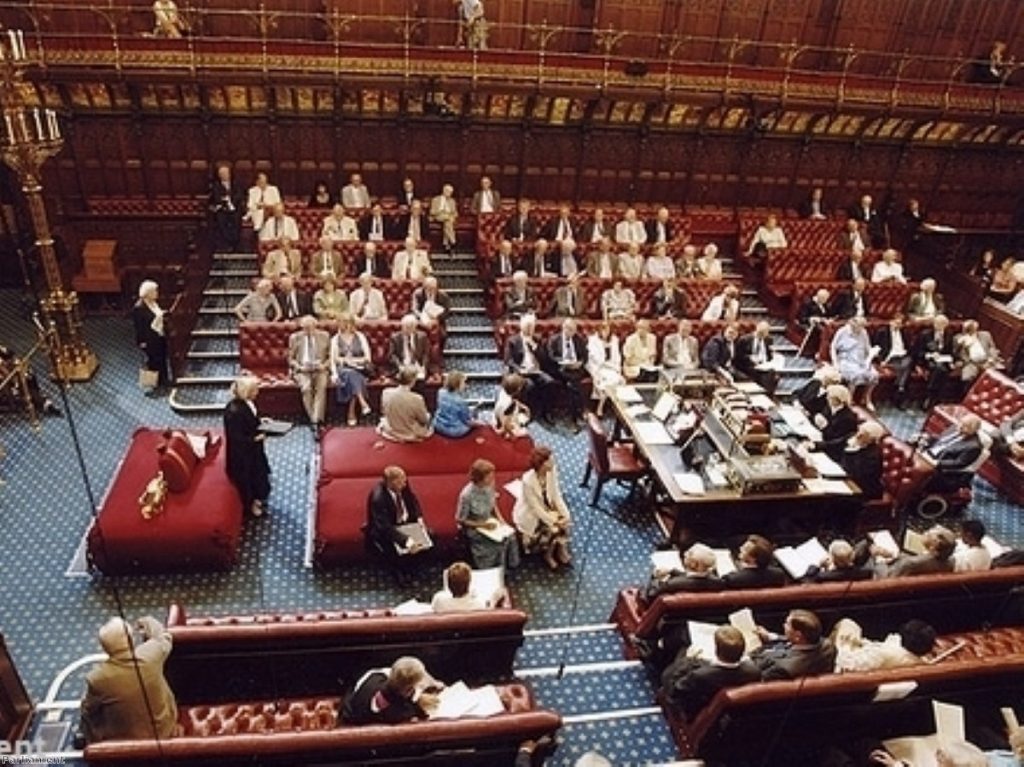EU referendum bill’s agonisingly slow death continues in the Lords
The Conservatives' bid to secure a guaranteed EU referendum in the next parliament faces an impossibly tough test when it comes up against Labour filibusterers in the Lords later.
Opposition peers have tabled scores of amendments in a bid to derail the partisan legislation, which would guarantee an in-out vote by the end of 2018.
Without it a referendum will only take place if the Conservatives win the next general election.
The legislation only succeeded in passing all its Commons stages after Labour frontbenchers chose to effectively ignore it.


Few expect the legislation to make it through the Lords, however, because it is easier for filibustering amendments to delay a bill's progress, opposition sources have told Politics.co.uk.
Tory backbench MP James Wharton may have succeeded in steering the bill through its Commons stages but its sponsor in the second chamber, House of Cards author Lord Dobbs, faces a near-impossible task.
"Labour and Lib Dem peers – clearly under the direction of their leaders – will attempt to kill off the bill by debating endless amendments, many of which are nonsense," he complained before the debate.
"Conservatives will be fighting to give the people the vote they want and deserve. We don't have a majority in the Lords, it will be a huge fight.
"One thing above all unites Conservatives and sets us apart from Labour and Lib Dems, and that is our determination to let ordinary voters have the final say in deciding our future in the EU."
Today the bill faces detailed scrutiny from peers as the Lords sits in a committee of the whole House.
Labour and Liberal Democrats have tabled 76 amendments to the legislation for debate, including clauses which would
– add a Gaelic version of the question to the referendum
– ensure those living in Gibraltar get to vote
– only make the poll count if one million people petition parliament
– put the referendum off until 2020
– make the final in-out decision subject to a final decision by the House of Commons.
Tory eurosceptic backbenchers in the Commons, who succeeded in winning No 10's approval for the private member's bill after placing intense pressure on party leader David Cameron, have long expected their attempt to falter in the Lords.
They have devised a 'plan B' which relies on the Parliament Act to guarantee the legislation becomes law before the 2015 general election.
Although treated with disdain by the opposition, the scheme could succeed in forcing Labour whips to fight the bill if an identical private member's bill were to pass the Commons after this year's Queen's Speech.

